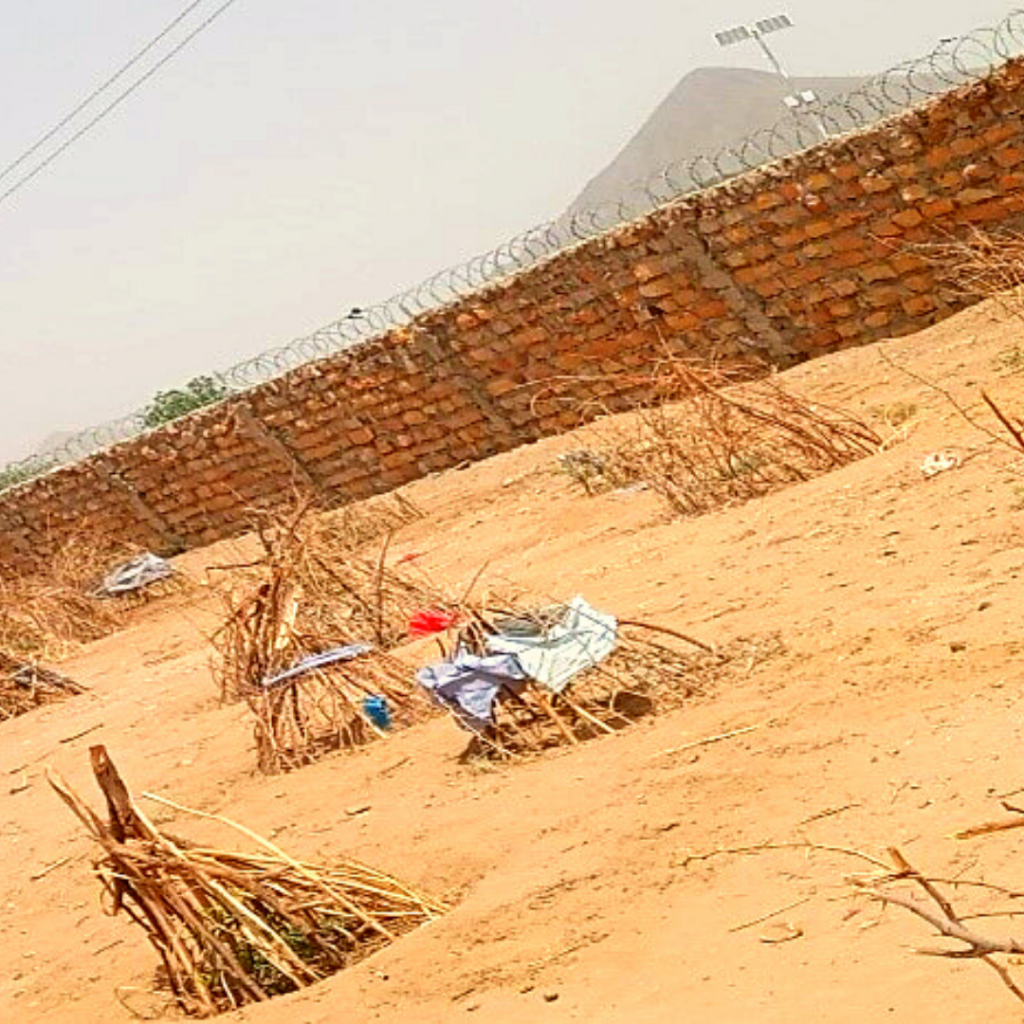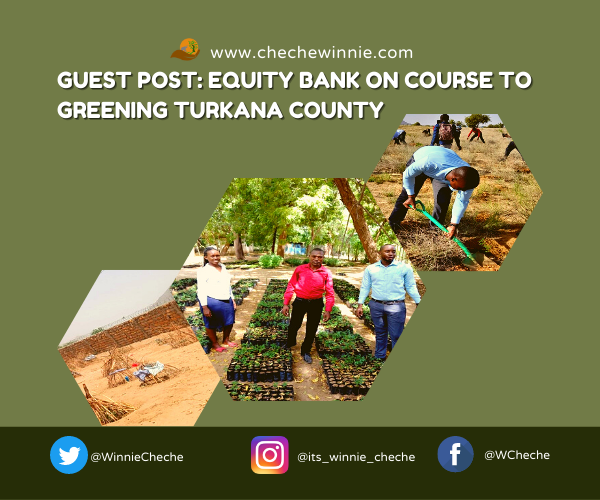Turkana County is a semi-arid place that is hot and dry almost throughout the year with temperatures going up as high as 40 degrees. The drought and high temperatures have made it difficult to sustain forest cover in the region. Even so, Equity Bank has made significant steps in helping with environmental diversification through its tree-planting initiative which has seen more than 4,000 trees planted since December 2020.
With an aim of greening Turkana County, part of Equity’s initiative of planting 35 Million trees, Equity has employed a phased approach in efforts to achieve uniform forestation of the region. The aim is to have the project implemented in different locations to lower the chances of destruction from threats such as domestic animals feeding on seedling leaves.
In 2021, 3400 indigenous trees were planted by the bank in Lodwar. This is in addition to the 787 that had been planted back in 2020.
The 3400 trees were planted in Turkana University College (2600) and Lodwar Prisons (800). Partnering with these government institutions will ensure that the seedlings are well watered and protected from the animals looking for pasture. This year, the Lodwar branch is aiming at Partnering with more parties in planting an additional 30,000 seedlings

Planting session in Turkana University College
In December 2020, Equity Bank Lodwar Branch planted 450 trees at St Monica Primary School, Turkana County. The species was a mixture of Neem trees and some indigenous trees.
The school had tried planting some trees in the school before but the survival rate always fell below 10%. Fortunately, out of the 450 trees planted, about 90% survived. Patrick Abodi, a staff at Equity Bank volunteered to pay a custodian to watch over the trees preventing animals from feeding on them, students used the branches as a toothbrush and ensured that the seedlings are watered.

Trees at St. Monica protected from goats
Mr. Abodi says the bank identified the school as one of its target sites because of its willingness to offer land for the initiative and the availability of water for watering the seedlings. The school also has a perimeter wall that prevents domestic animals from feeding on the seedlings. Most areas in Turkana have spaces where tree planting can be done, however, there’s a challenge with lack of water, proper fencing, and security to ensure at least trees’ survival and growth to maturity.
On the reception of the project by community members and stakeholders, Mr. Abodi says, “the project received a good reception from the community and the school in general, One of the teachers volunteered to assist in monitoring and ensuring that the students do not use the branches for brushing their teeth, we also assigned one of the community members to continuously water the seedlings during the holidays and he is assisted by the pupils when the school resumes.
Leveraging the community’s willingness to engage in the project and drive it forward is seen as a key pillar in the success of the tree-planting project in Turkana County.
During the seedling planting launch, the communities were educated on the essence of environmental conservation and the use of alternative sources of energy such as green energy to avoid environmental degradation. The bank has partnered with the manufacturers of clean energy products to ensure that the community can access and use clean fuel. This will ensure that the trees are well protected. Seedlings are offered to community members who commit to taking care of the seedlings until they mature.
The Bank continues to ensure that the community is well educated on the importance of tree planting and environmental conservation. In addition, it liaises with the Kenya Forest Service (KFS) to ensure that mature trees are not cut illegally and that mature trees, which have been harvested economically, are replaced by seedlings.

The seedlings at the Kenya Forest Service (KFS) offices. The seedlings are sold at Ksh 100 per seedling because of the high cost of production.
Equity bank plans engage the community by planting seedlings that can be managed during the early stages of growth so that they can reach levels where they can survive on their own i.e by planting seedlings that can easily be managed in terms of numbers within a given niche. In addition, the bank plans on giving out seedlings to individuals who are willing to plant and take care of the trees but do not have the resources to purchase the seedlings.

Bio
Reuben Simiyu is an Account Executive at Ogilvy Africa. He has a wealth of experience in editorial strategization, media relations, brand management and marketing. His contributions in strategic communications and content curation span across various digital and mainstream channels with commentary bylines in The Standard Newspaper, The Business Daily and The People Daily.

